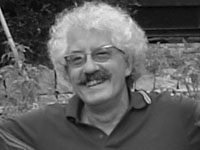 Jean Lambert Jean Lambert
Jean Lambert is a teacher & researcher in anthropology and musicology at the Musée de l’Homme in Paris and since September 2003, he has held the position of Acting Director of the French Center for Archeology and Social Sciences in Sanaa (CEFAS). Currently acting as an international ethnomusicology consultant to UNESCO, he was appointed Head of Evaluation of the Intangible Heritage of Sharjah, UAE (Oct-Nov, 1999) and Yemen, UNPD (Nov-Dec, 2000). From 1991 until 2003 he worked on the conservation and development of ethnographic collections from Africa and the Middle East. Since 1999 he is the Acting Director of Studies and teaches at the University of Paris X-Nanterre. He has also held the post of scientific adviser at the Center of Musical Heritage of Yemen (Sanaa) since 1998. He has published numerous articles and books about anthropology and ethnomusicology, including titles such as: “The medicine of souls: The Sanaâ singing art”, in Arabic, and “Yemen”, in French, (2002); “The music of the Arab and Muslim world, bibliography and discography” in collaboration with Christian Poché and others, in French, (2000); and “The medicine of the soul. Song of Sana’a in Yemeni Society” (1997). |
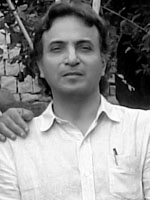 Nidaa Abou Mrad Nidaa Abou Mrad
Professor of General Traditions Musicology, he is also a violinist and composer, as well as a musicology and medical doctor. He is the Director of the Higher Institute of Music at the Antonine University in Lebanon, editor of the RTMMAM (Revue des Traditions Musicales des Mondes Arabe et Méditerranéen) and the artistic director of the Taqtuqa collection (CD) which comprises musical traditions of the Arab and Mediterranean world. He is currently leading research of master’s theses and DEA papers in general traditions musicology at the Antonine University and has written many scientific articles in encyclopedias and academic journals. These include: “The absence of the musical improvisation concept during the 1932 Congress and its cultural meanings” (2008) in Arabic; “The concept of musical work in terms of traditions in the Arab world” (2005, 2007); “Vocal and instrumental forms of art music tradition from the renaissance in the Mashreq” (2004) in French; “The faqîh and the singer: reform from within; a parallel between Muhammad ‘Abduh and ‘Abduh al-Hamuli” (1991) in Arabic. He has also published two musicological community books and a didactic CD entitled “The art of the maqam“. He is also an excellent music performer with seventeen CDs to his name and has participated in numerous international festivals. |
 Virginia Danielson Virginia Danielson
Virginia Danielson has conducted research in the Middle East for several years, developing an expertise in Arab and Middle Eastern music, and writing the 1997 biography “The Voice of Egypt: Umm Kulthum, Arabic Song and Modern Egyptian Society”. Virginia Danielson received her master’s degree in music in 1979 and her doctorate in 1991, both from the University of Illinois. She worked as an archivist in the university’s Ethnomusicology Archives in 1976 and as a cataloging assistant at the university’s music library in 1983. From 1984 until 1986 she conducted a field and archival research on Arab songs in Al-Minya and Cairo, Egypt. In 1987 she went on to Harvard as a cataloging assistant at the Widener Library and was afterwards named keeper of the Isham Memorial Library, a special collection of rare books, microforms, and manuscripts within the Loeb Music Library. She was named curator of the Archive of World Music in 1994, and the Loeb librarian in 1999. Since 1994, she has been a visiting lecturer at Harvard University, but also in major universities and groups. In 1999 she was awarded the Alan P. Merriam Award for best English-language monograph in ethnomusicology and in 2007 the Lucia Briggs Distinguished Achievement Award at the Lawrence University. |
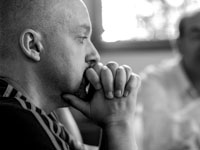 Frédéric Lagrange Frédéric Lagrange
Frédéric Lagrange is currently Lecturer HDR and Director of the Department of Arab and Hebrew Studies at the University of Paris-Sorbonne (Paris IV). He has written and published numerous articles and studies including: “Reflections on a few recordings of Koranic chant in Egypt (from the era of 78 rpm to the modern era)” (2009, in French); “The dialectal poetry and songs” History of Modern Arabic Literature, Volume 1 (1800-1945) (2007), in French; “Researches on the pleasures in the medieval and contemporary Arab societies: music, language, sexuality” (2007), in French; “When Egypt was sung, taqtuqa and light songs in the early twentieth century” (2001), in French; “Musicians and poets in Egypt during the time of the Nahda” (doctorate, 1997), in French. He is the author of two books: “Music of Egypt” (1996) and “Islam of prohibitions, Islam of pleasures” (2008), both in French. He has also edited numerous booklets and CDs in the framework of the Arab Music Archives collection. |
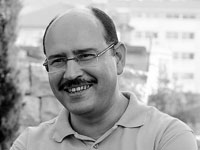 Lotfi M’raihi Lotfi M’raihi
A Tunisian doctor whose obsession with music has led him to learn its principles and delve into music’s contemporary history. He has dedicated part of his writings (all of them in Arabic) to music, such as: “The sweetest of talk in praising the Creator and His Prophet” about the relation between Sufi principles and religious cantillation; “Shaykh Amine Hassanein: an era of Tarab” (Tunis 2004); “Religious Cantillation in the World of Islam” (Tunis 2006); “Arab Music Where To?” (Beirut 2008). Over the years he has also produced and presented a series of programs dealing with music for both the Tunisian national and youth radio: “Songs nobody asks for”; “The sweetest of talk in praising the Creator and His Prophet” and “In the presence of Music”. He leads the Foundation for Music Creativity in Tunisia and is one of its founders. He also manages three annual festivals: the Instrumental Music Festival, the Spiritual Music Festival, and the Cantillation Festival. |
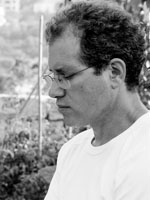 Michael Frishkopf Michael Frishkopf
Associate Professor of Music at the University of Alberta, he is an ethnomusicologist and composer and a graduate of Yale College (BS Mathematics, 1984), Tufts University (MA Ethnomusicology, 1989) and the University of California, Los Angeles (Ph.D. Music, 1999). Dr. Frishkopf’s ethnomusicological research interests include Sufi music, the Arab music industry, sound in Islamic ritual performance, music in West Africa, music and religion, comparative music theory, the sociology of musical taste, social network analysis, and digital music repositories. He has received numerous fellowships supporting his research, including grants from Fulbright, the American research center in Egypt, the Social Science Research Council, the Woodrow Wilson National Fellowship Foundation and the Killam Foundation (Canada). He is the founder of the University of Alberta Middle Eastern and North African Music Ensemble (in 2004), as well as the University of Alberta West African Music Ensemble (in 1999). |
